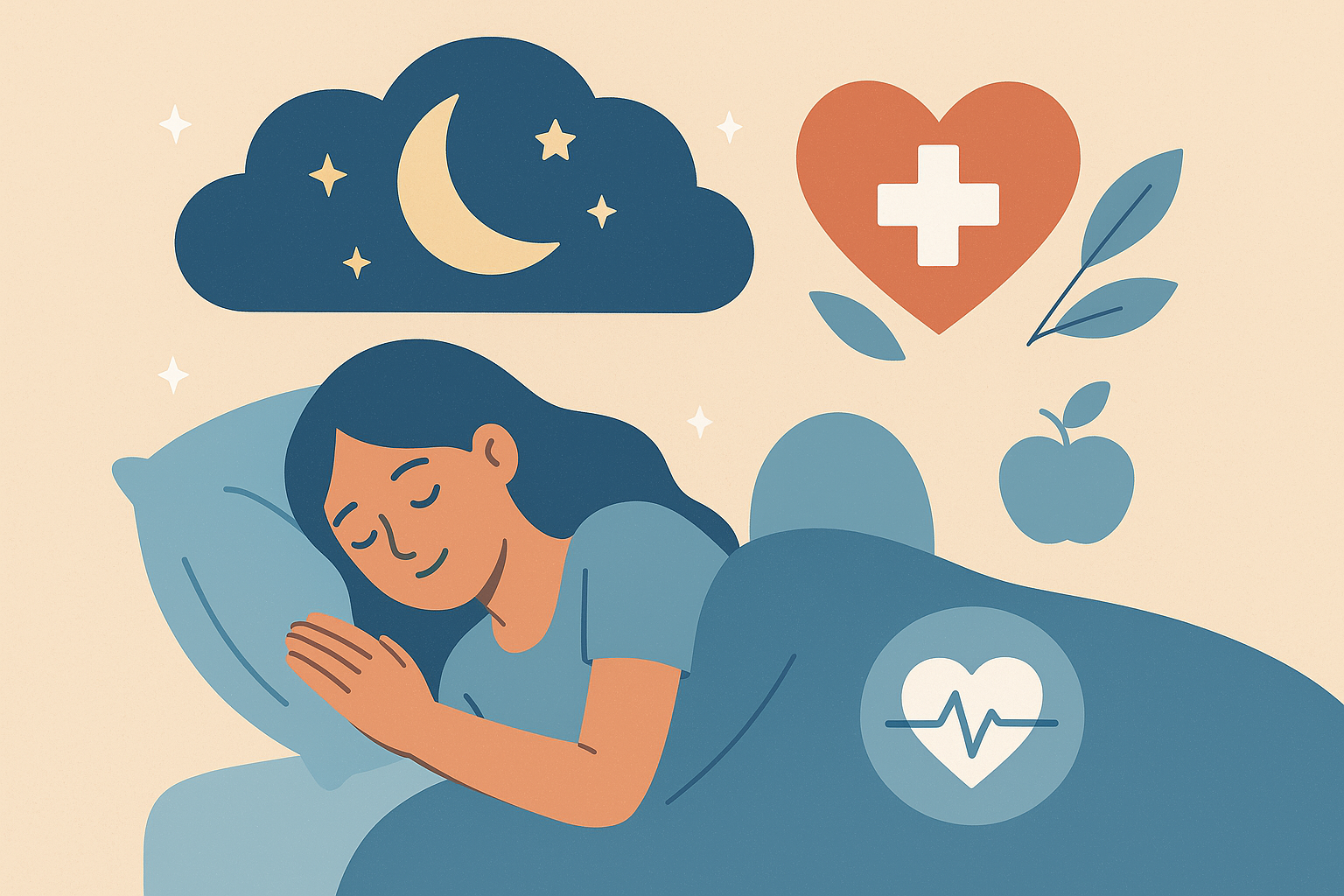In a world that celebrates hustle and productivity, sleep is often underestimated. Yet, it is one of the most powerful tools for healing, recovery, and overall health. According to Dr. Barbara O’Neill, sleep is a biological necessity, not a luxury. It is during sleep that the body performs its most important maintenance and repair work.
Why Is Sleep Important for Healing?
Sleep is not just about resting your body—it’s about repairing and regenerating it. During deep sleep stages, the body releases growth hormones that stimulate tissue repair, immune function, and muscle growth. This is why sleep is so crucial for recovery from illness, surgery, or emotional stress.
Healing in Sleep
Dr. Barbara O’Neill explains that healing in sleep occurs at a cellular level. When we enter deep sleep, our nervous system calms down, inflammation is reduced, and the body prioritizes recovery processes. This is the concept of deep body healing in your sleep.
The Concept of Sleep and Rest
The concept of sleep and rest, as taught in medical institutions like KMU and explained by holistic experts like Dr. O’Neill, revolves around the idea that sleep is not just the absence of activity. It’s a dynamic biological process essential for physical, mental, and emotional well-being.
Rest and sleep are also crucial in addiction recovery, postoperative healing, and chronic illness management. Without proper rest, healing slows, immunity weakens, and stress levels rise.
Why Getting 8 Hours of Sleep Is Important
You’ve heard it countless times: get your 8 hours. But why is 8 hours of sleep so important?
- It allows for adequate REM and non-REM sleep cycles
- REM sleep (Rapid Eye Movement) is essential for cognitive function, memory consolidation, and emotional processing
- Non-REM sleep, particularly deep sleep, supports physical healing and immune defense
Dr. O’Neill warns that when people consistently sleep less than 6 hours, they’re robbing their body of critical recovery time.
The Importance of REM and Deep Sleep
Why Is REM Sleep Important?
- Processes emotions and memories
- Enhances learning and problem-solving skills
- Supports mental health and emotional stability
Why Is Deep Sleep Important?
- Promotes muscle repair and tissue growth
- Strengthens the immune system
- Helps detoxify the brain through cerebrospinal fluid flow
Dr. Barbara O’Neill emphasizes that healing in deep sleep is not just theoretical—it’s backed by science and essential for long-term health.
How Does Sleep Help Recovery from Illness?
When you’re sick, your body is in crisis mode. During sleep, especially deep and REM sleep, your body:
- Produces more white blood cells
- Lowers inflammatory markers
- Repairs damaged tissues
- Regulates stress hormones like cortisol
That’s why one of the first prescriptions for recovery—whether from flu, injury, or surgery—is: “Get plenty of rest.”
Sleep Hygiene in Hospitals and Recovery
Hospitals are often noisy and bright, making sleep hygiene for patient healing a challenge. Poor sleep in hospitalized patients can delay healing, increase stress hormones, and impair immune function. Dr. O’Neill suggests that improving sleep hygiene, even in clinical settings, should be a priority for accelerating recovery.
Why Sleep Is So Important for Mental and Physical Health
Beyond healing, why is sleep so important for your health overall?
- It supports emotional balance
- Regulates hormonal rhythms
- Enhances brain detoxification
- Affects weight regulation and metabolic health
- Prevents chronic diseases like diabetes, hypertension, and depression
Whether you’re a student, a parent, or a professional, getting consistent, high-quality sleep is a pillar of peak performance and longevity.
Tips for Better Sleep Hygiene
Dr. O’Neill advises simple but powerful habits:
- Stick to a consistent sleep schedule
- Avoid screens and caffeine before bed
- Ensure a dark, cool, quiet sleep environment
- Use natural light during the day to regulate your circadian rhythm
Final Thoughts
Does sleep improve healing? Absolutely.
Sleep is not optional. It’s the foundation of recovery, performance, and health. As Dr. Barbara O’Neill teaches, when you prioritize sleep, you empower your body to heal, detoxify, and thrive.



